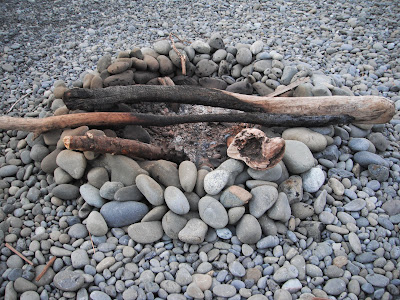Occupy London protest camp evicted from St Paul's
Police and bailiffs dismantled the Occupy London campsite outside the city’s iconic St Paul’s cathedral in an overnight raid Tuesday, ending a four-month protest against corporate greed and economic inequality.
REUTERS - Police and bailiffs cleared an anti-capitalist camp from outside St Paul’s cathedral in London early on Tuesday, ending a four-month protest which resonated with Britons angered by huge bonuses awarded to bankers during an economic slowdown.
There was no violent resistance from the Occupy London activists as bailiffs employed by the City of London Corporation, which owns the land on which they were camped, removed around 50 tents within an hour shortly after midnight.
The urban camp was set up as part of an international movement inspired by the U.S. Occupy Wall Street against what the activists say is corporate greed and economic inequality.
It was one of many protests across Europe in recent months as the continent struggles with a debt crisis.
Authorities in some North American cities have used violence to forcibly remove similar camps but in London the action was largely peaceful.
“It is a sad evening, but it has been coming,” Dan Ashman, 27, said. “The saddest day was when the courts didn’t recognise reality, but the reality that the authorities put before them.”
The protesters themselves had removed around 100 tents after they lost their legal battle to stay last week.
After dismantling the remaining tents, bailiffs took down a barricade of wooden crates where about a dozen activists had stood, chanting “Occupy Everywhere”. Police shunted others across the cathedral steps.
The protesters chose to pitch their tents outside St Paul’s in October after they were blocked from their intended target, the nearby square at the London Stock Exchange.
Debate
The 300-year-old baroque cathedral is one of central London’s most recognisable landmarks, a favourite with tourists and likely to be thronged by Olympic visitors this summer. It was also where Prince Charles married Princess Diana in 1981.
The arrival of the camp prompted a debate about the role of ethics in finance in Britain, where many people are angry that banks, some of which took billions of pounds of taxpayers’ money in a government bailout, continue to pay out big bonuses despite being largely blamed for the 2008 financial crisis.
The cathedral appeared divided on how to handle the sit-in, resulting in the resignation of two senior Anglican clerics and another debate, about the relationship between the Church and the City, London’s financial district.
Two people appeared to have been wounded. Sky news said 20 people had been arrested.
By early morning many of the activists had drifted away and most were resigned to the eviction.
George Barda, 36, who went to court to fight the eviction, said it was important that activists left peacefully.
“I am sure we could have put up more of a show by chaining ourselves to railings, but it is not a question of matching the power of the authorities,” he said.
The activists, who were joined by homeless people at the camp, received support from some celebrities including designer Vivienne Westwood and playwright Alan Bennett, who dropped in for tea and left signed copies of his work at its library tent.
But it was also accused of being too diverse in its cause.
The Corporation won its right to remove the camp after arguing in court that it hindered planning control, attracted crime, and interfered with a public right of way and the rights of those who wished to worship in the cathedral.
It won a case in the High Court last month for the tents to be taken away. The protesters went to the Court of Appeal arguing that their case had “unique and global” significance but the appeal was rejected.
The protesters could still apply to the European Court of Human Rights.


































































